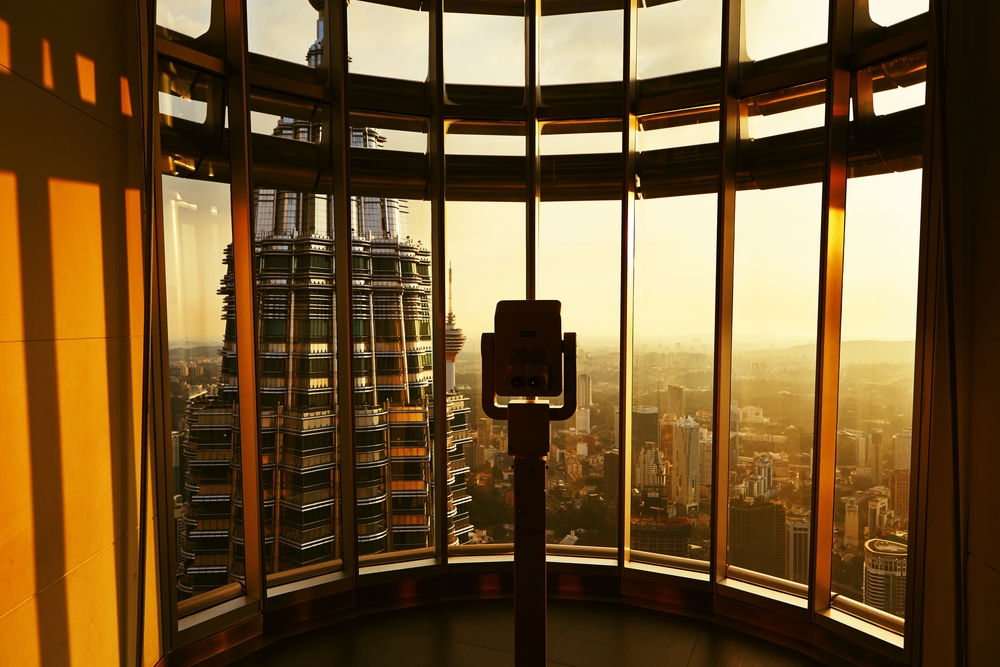How Malaysia’s commercial real estate is being redefined
Why ESG, flexibility, and flight to quality are driving investor confidence

Malaysia’s commercial real estate landscape is undergoing a compelling transformation, buoyed by rising interest from high-net-worth individuals and institutional investors. Office, retail, and industrial spaces are being reimagined, driven by demand for flexibility, sustainability, and quality.
According to Business Today Malaysia, transaction volumes in the commercial property segment have seen notable upticks as investors seek secure, income-generating assets in a stabilising economy. The growth is especially strong in urban business districts where institutional-grade investments and owner-occupier interest dominate.
Key trends shaping the market
“Malaysia’s commercial real estate landscape is poised for significant transformation,” said Mr. Christophe Vicic, Chief Growth Officer of JLL Appraisal and Property Services Sdn. Bhd. and member of the Judging Panel for the PropertyGuru Asia Awards Malaysia in partnership with iProperty.com.my. “The flight to quality is becoming increasingly pronounced in the office market.”
JLL’s Q1 2025 Malaysia Market Dynamics Report observed that financial institutions and tech companies are zeroing in on premium developments, particularly within the Tun Razak Exchange (TRX) precinct. “Companies are prioritising Grade A buildings with green certifications that offer superior amenities and technologies supporting employee wellbeing and productivity,” Vicic noted. This shift has contributed to improved vacancy rates—19.4 percent in KL City and 8.5 percent in the KL Fringe.
In a separate report, The Malaysian Reserve echoed this sentiment, describing 2025 as a “bright year” for Malaysia’s commercial property sector. The publication attributed this growth to increasing confidence from both local and foreign investors in the nation’s economic trajectory and infrastructure readiness.
Adapting to the hybrid future
Flexibility is also redefining commercial space usage. Vicic shared that “Flexible space solutions are revolutionising how investors approach commercial assets. With companies adopting hybrid work models, we are witnessing growing demand for flexible workspace arrangements and fitted offices which help with better cashflow management.”
This sentiment is supported by RP Realty Plus, which highlighted the evolution of office leasing strategies to accommodate blended workforces. Building designs that offer modular layouts and integrated digital infrastructure are becoming highly sought after.
Opportunities through strategic repositioning
“Investment activities in commercial real estate will still be predominantly supported by domestic demand for owner-occupational requirements or institutional-grade investment,” Vicic explained. He advised that stakeholders remain competitive by enhancing their assets and focusing on ESG. “Our data shows green-certified buildings are attracting premium tenants and investments, particularly from institutional investors with sustainability mandates.”
He also encouraged landlords and developers to explore “strategic repositioning,” especially in the retail sector. “Successful landlords are becoming more selective with tenants and driving upward pressure on rents for prime spaces.”
According to the Malaysia Commercial Real Estate Investment Sentiment Survey 2025 by Knight Frank, analysts indicated a broader trend of commercial portfolios being reshuffled to cater to evolving retail and corporate tenants. The report highlighted landlords who are reinvesting in mall upgrades, accessibility enhancements, and mixed-use functionality.
Celebrating Malaysia’s regional excellence
As commercial real estate evolves, Malaysia’s standout developments are gaining recognition across the region.
At the 19th PropertyGuru Asia Property Awards Grand Final 2024, Malaysian projects claimed prestigious accolades among peers from 15 markets across Asia, Australia, and the Middle East:
- Best Industrial Development (Asia) was awarded to Serenia Industrial Park by Sime Darby Property Berhad, showcasing the strategic role of industrial zones in driving logistics and trade.
- Best Office Development (Asia) was awarded to The MET Corporate Towers by Triterra Sdn Bhd, underscoring Malaysia’s emergence as a regional hub for high-performance, ESG-aligned workspaces.
These recognitions reinforce the nation’s competitive edge and the rising visibility of Malaysian developers on the global stage.
Looking ahead
Vicic concluded that “Malaysia’s commercial real estate market demonstrates remarkable resilience and growth potential for investors who can align their strategies with these emerging trends.”
With a renewed focus on asset quality, green credentials, and flexibility, Malaysia’s commercial real estate sector is carving out a distinctive space in Asia’s property investment map—one that is modern, adaptable, and future-ready.
This article was originally published on asiapropertyawards.com. Write to our editors at [email protected].
Recommended
ARES Whitepaper Volume 4: Powering communities – The catalysts of urban evolution
Fresh perspectives on sustainability, lifestyle, and design shaping the future of real estate
ARES White Paper Volume 3: The era of adaptive reinvention
Pioneering sustainable and innovative practices in urban development
ARES White Paper Volume 2: Unravelling the power of data revolution in real estate
Insights on proptech, smart cities, and sustainable development
ARES Digital White Paper Volume 1: The fundamentals of responsible building
Green and climate heroes join forces to discuss how Asia Pacific can weather the current environmental crises and the looming effects of climate change







